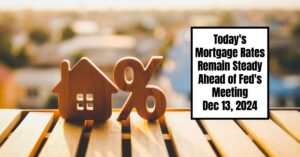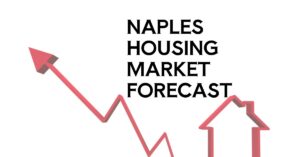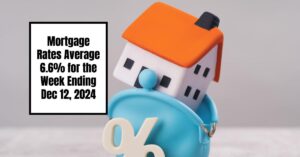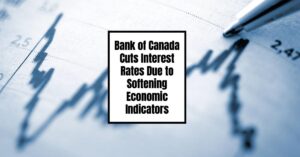Today’s mortgage rates remain steady, averaging 6.30% as we approach the Federal Reserve's meeting, scheduled for next week. While the Fed is expected to lower rates, the market has already anticipated this change, meaning we shouldn't expect significant drops in mortgage rates following the meeting.
Today's Mortgage Rates Remain Steady Ahead of Fed's Meeting – Dec 13, 2024
Key Takeaways
- Current mortgage rates are averaging around 6.30%, down from 6.56% last month.
- The Federal Reserve is predicted to cut rates in its upcoming meeting, but this is already priced into the market.
- Expect mortgage rates to gradually decrease in 2025, depending on economic conditions and inflation trends.
- Mortgage types include the 30-year fixed, 15-year fixed, and various adjustable-rate mortgages (ARMs), each with specific average rates.
Understanding Today's Mortgage Rates
Most homeowners and prospective buyers understand that mortgage rates play a crucial role in home financing. On December 13, 2024, the average 30-year fixed mortgage rate holds steady at 6.30%. Last month, it was slightly higher at 6.56%, indicating a slight easing in borrowing costs.
For many potential homebuyers, understanding and navigating the mortgage rate market can feel overwhelming. The prospect of financing a new home can be both exciting and daunting, particularly when considering how much interest will ultimately be paid over the life of the loan. The average rate provides a snapshot of the current lending environment, allowing individuals to estimate monthly payments and plan their budgets accordingly.
Let’s break down the rates for various types of mortgages, each of which comes with its own unique characteristics and potential benefits for borrowers:
- 30-Year Fixed Rate: 6.40% (Zillow)
- 20-Year Fixed Rate: 6.15%
- 15-Year Fixed Rate: 5.77%
- 7/1 ARM: 6.67%
- 5/1 ARM: 7.09%
These averages reflect a competitive mortgage environment but also a cautious outlook for future rate movements. This data serves as a foundation for making informed decisions, emphasizing the importance of evaluating personal financial situations against the backdrop of prevailing rates.
The Role of the Federal Reserve
The Federal Reserve's decisions significantly influence mortgage rates. In recent months, the Fed has shifted from raising rates to now anticipating cuts. The last two rate cuts were implemented in September and November of this year, aiming to facilitate economic stability while addressing inflation concerns.
Understanding the mechanism of how the Federal Reserve impacts mortgage rates is crucial for anyone looking to secure financing. The Fed sets the benchmark federal funds rate, which is the interest rate at which banks lend to each other overnight. Although mortgage rates are not directly set by the Fed, they often rise or fall in anticipation of changes in this rate. When the Fed raises rates, lenders might increase mortgage rates in response to the anticipated cost of borrowing, and conversely, when the Fed decreases rates, mortgage rates can follow suit.
Investors and market analysts closely monitor the Fed's actions, as they can lead to adjustments in mortgage-backed securities, directly impacting mortgage rates. When the Fed announces a pause or a cut in rates, mortgage rates may not drop immediately; instead, they often adjust based on what the market has already anticipated.
Economic Outlook and Its Effect on Mortgage Rates
Looking ahead, the trajectory of mortgage rates largely depends on the overall economic environment. If the Fed continues to lower its benchmark rate throughout 2024, we could see mortgage rates decline gradually. However, the extent of these reductions will depend on inflation trends and economic growth.
As inflation remains above the Fed's target of 2%, there are concerns that rate cuts may not be as aggressive in the coming months. Some analysts suggest that if inflation proves difficult to control, mortgage rates may only see minor reductions in 2025 (Reuters).
The unpredictability of the economy can make it challenging for potential borrowers to decide when to lock in a rate. Many factors come into play, and shifts in quarterly economic reports can lead to rapid changes in the mortgage rate landscape. For example, if a major employment report indicates strong job growth, it might lead to expectations of continued inflation, which could keep mortgage rates elevated.
Comparison of Mortgage Types
Different types of mortgages offer varying advantages depending on your financial goals. Here are some details about popular mortgage types based on recent statistics:
- 30-Year Fixed Mortgages: These loans have a fixed interest rate for 30 years, providing a stable monthly payment. The average rate of 6.30% makes this option appealing for long-term financial planning. This type of mortgage is the most popular choice among homebuyers because it allows them to keep their monthly payments lower over a more extended period.
- 15-Year Fixed Mortgages: These loans have a shorter repayment period and typically lower rates, averaging approximately 5.77%. While the shorter term allows homeowners to significantly reduce the amount of interest paid over the life of the loan, it requires higher monthly payments. Homebuyers looking to build equity quickly or decrease overall interest expenses may find this option to be beneficial.
- Adjustable-Rate Mortgages (ARMs): These mortgages are initially offered with lower interest rates that adjust periodically after a set period, such as 5 or 7 years. The average 7/1 ARM stands at 6.67%, while the 5/1 ARM is at 7.09%. Borrowers should be cautious with these loans, as there is potential for significant increases in monthly payments once the rate adjusts. However, for those planning to sell or refinance before the adjustment period, ARMs can offer substantial upfront savings.
Considering these options is vital for potential homeowners. Selecting the right mortgage type tailored to individual circumstances can mean the difference between financial comfort and stress.
Assessing Refinance Opportunities
For homeowners considering refinancing, it's essential to evaluate the timing and conditions carefully. As of now, refinance rates are closely aligned with purchase rates, making this a potentially viable option. The average 30-year fixed refinance rate is around 6.53%, slightly down from average figures over the past months.
When deciding whether to refinance, consider the following factors:
- Current Interest Rates: If you can secure a lower rate than your existing mortgage, it may be beneficial to refinance, especially if you plan to stay in your home for several years.
- Length of Stay: If your situation suggests you would sell the home within a few years, it might not make sense to pay closing costs for refinancing, especially if savings aren’t substantial.
- Closing Costs vs. Monthly Savings: Refinancing can be beneficial if you can lower your rate significantly enough to recoup your closing costs within a reasonable timeframe. For example, if refinancing costs $3,000 and the new rate saves you $200 a month, it would take 15 months to break even.
- Market Conditions: Keep an eye on the Fed's movements and general economic indicators. Adjustments to the federal funds rate can affect mortgage rates indirectly.
Measuring the Impact of the Federal Reserve's Decisions on the Market
The Fed's meetings carry weighty implications not just for mortgages but for the economy at large. With multiple forecasts pointing to rate cuts in 2024, the reaction from various market segments will be scrutinized. Rates have already adhered to a more stable range as investors prepare for potential changes.
Mortgage-backed securities, which are created when lenders bundle loans and sell them to investors, also react to the direct implications of changes in federal interest rates. As demand for these securities shifts, it influences the rates that lenders offer to consumers. When investors see favorable interest rates, it can lead to lower mortgage rates, thus making homeownership more accessible.
The Influence of Broader Economic Factors
Mortgage rates depend on numerous factors that extend beyond the control of individual borrowers:
- Federal Reserve Policy: As previously mentioned, fluctuations in the federal funds rate can shape loan conditions for consumers. The Fed's monetary policy decisions aim to foster economic stability, balancing inflation with employment levels.
- Economic Growth: Strong growth can lead to higher demand for loans, which may push rates up. Conversely, sluggish growth can result in lower rates as demand falls. Economic indicators like Gross Domestic Product (GDP) and employment statistics are key signals of overall growth.
- Inflation Rate: Persistent inflation prompts central banks' tightening measures, leading to higher rates. As the cost of goods and services continues to rise, central banks may respond with rate hikes to cool inflationary pressures. This is crucial for understanding how rates will move in the future; if inflation dips, it could lead to more aggressive cuts.
- Geopolitical Factors: Global events can also influence mortgage rates. Economic sanctions, trade wars, and external shocks can lead to volatility in financial markets, impacting mortgage rates indirectly as investors react to risks.
Potential Future of Mortgage Rates
As we move into the new year, it’s critical to consider projections for mortgage rates. Current predictions suggest a trend toward lower mortgage rates in 2025, particularly if the Federal Reserve successfully addresses inflation concerns. The market generally anticipates further cuts, as signs of economic growth stabilize.
However, analysts warn that caution is essential. If inflation remains high or economic growth exceeds expectations, the Fed may adopt a more conservative approach to rate cutting. Therefore, while a general decline is expected, the extent and timing remain uncertain.
Additionally, savvy borrowers may wish to monitor rates closely and engage with financial institutions early. By staying informed and prepared, they can make decisions that could save them thousands of dollars over the life of their loans.
Conclusion
As of today, December 13, 2024, mortgage rates remain steady at an average of 6.30% while the Federal Reserve signals potential rate cuts ahead. While the expectation of these cuts has already been priced into the current mortgage landscape, prospective buyers and homeowners should remain informed and prepared to make critical financial decisions, whether it involves locking in a mortgage or considering a refinance.
The evolving economic context surrounding mortgage rates emphasizes the importance of staying well-informed about Fed policies, economic indicators, and potential outcomes in future meetings, all of which play pivotal roles in shaping the mortgage market. In these uncertain times, making educated decisions based on accurate data and trends is more crucial than ever.
Partner with Norada, Your Trusted Source for Turnkey Investment Properties
Discover high-quality, ready-to-rent properties designed to deliver consistent returns. Contact us today to expand your real estate portfolio with confidence.
Reach out to our investment counselors:
(949) 218-6668 | (800) 611-3060
Recommended Read:
- Mortgage Rates Predictions for 2025: Expert Forecast
- Half of Recent Home Buyers Got Mortgage Rates Below 5%
- Mortgage Rates Need to Drop by 2% Before Buying Spree Begins
- Mortgage Rates Predictions for the Next Three Months Q4 2024
- Prediction: Why Mortgage Rates Won’t Go Below 6% in 2024?
- Will Mortgage Rates Ever Be 3% Again: Future Outlook
- Mortgage Rates Predictions for Next 2 Years
- Mortgage Rate Predictions for Next 5 Years
- Mortgage Rate Predictions for 2025: Expert Forecast
- Prediction: Interest Rates Falling Below 6% Will Explode the Housing Market
- Mortgage Rate Predictions: Why 2% and 3% Rates are Out of Reach
- How Lower Mortgage Rates Can Save You Thousands?
- How to Get a Low Mortgage Interest Rate?
- Will Mortgage Rates Ever Be 4% Again?











